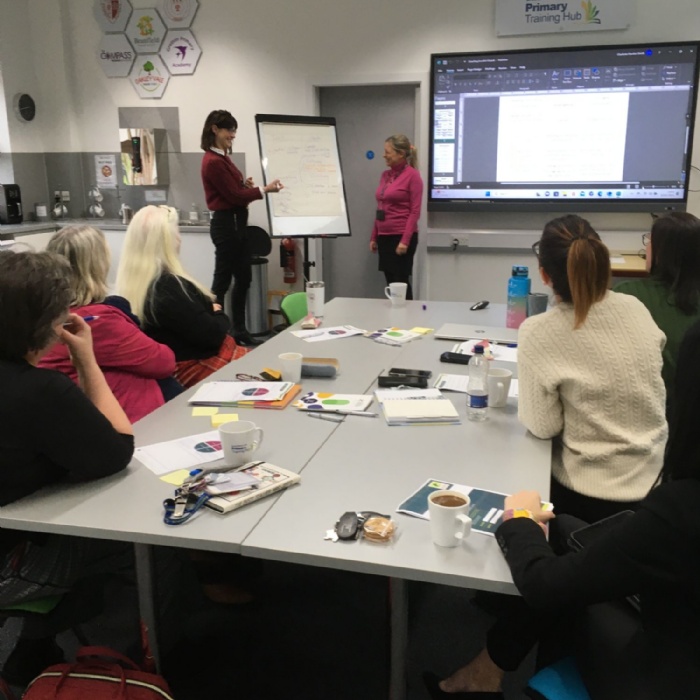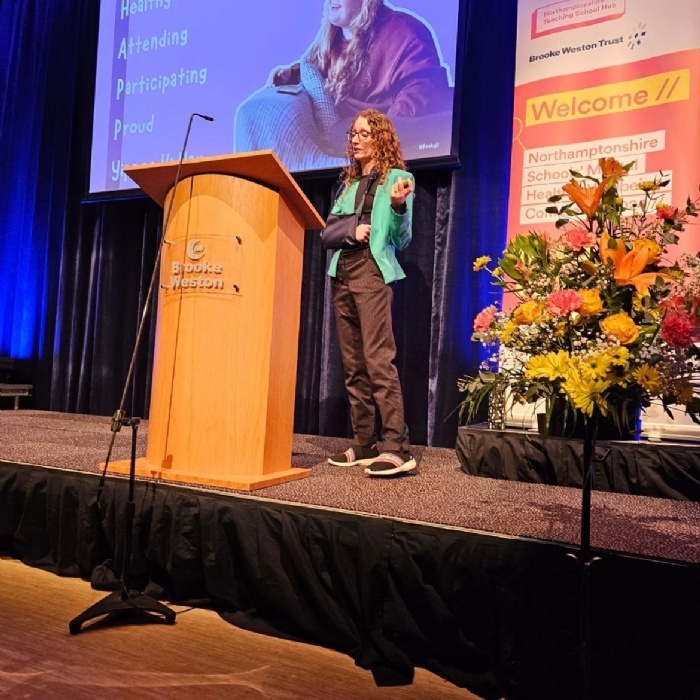The role of Governance in supporting schools at Brooke Weston Trust

Supporting our schools, whilst holding relevant leaders to account through constructive challenge is the primary mission of governance. The multi-layered nature of this function means that there are many important pieces of the puzzle, not least the volunteers who are critical to its success. Their support is crucial for schools to not only function, but improve and thrive, enabling ‘Ambition for All’.
A positive impact for all
Monica Juan is Head of Governance at Brooke Weston Trust and oversees aspects of effectiveness and compliance with regard to governance within the Trust. She explains that “the beauty of being part of a Multi Academy Trust is that working together we can better raise standards across the board”.
The role of Governance is therefore to appropriately challenge how public funds are used within the schools, in a way that positively impacts the children.
As both a business and a charity, Brooke Weston Trust is governed in a layered way:
- The Members, akin to shareholders in the private sector, are responsible for ensuring the Trust’s “objectives” are met and governance is effective.
- The Trustees (Board of Directors) are accountable for the strategy of the organisation. They are responsible for ensuring the company achieves its objectives and that it complies with the Trust’s Funding Agreement and company/charity law.
- The sub-committees have delegated responsibilities, as determined by the Trust Board, around areas of specialism including local governance. They are volunteers who have the skillset and experience required to effectively hold executive and senior leaders to account for the performance and strategic objectives of each academy in the Trust.
- The Executive and Senior Leaders of the Trust have delegated responsibilities from the Board of Directors for the day-to-day management and leadership of the Trust (CEO and Executive) and the academies (Academy Principals).
- The Local Governing Body (LGB) provides critical support and challenge to the leadership team within a school, bringing with them knowledge of the school’s context and various viewpoints from the school’s stakeholders (staff, parents, local community).
Whilst the structure is complex and multi-layered, one commonality exists among this community – the desire to make a positive impact on the lives of young people by providing them with the ‘tickets for life’ irrespective of their background or starting point.
Monica added “This is a very valuable group of individuals who volunteer in these roles and provide an essential public service. They sometimes get forgotten in the grand scheme of things and I’m keen to emphasise how lucky we are to have such dedicated people in our Trust community. My role is to nurture and train these people, ensuring that everyone is equipped to make informed decisions.”
An exploration into failing schools across the sector quickly identifies ineffective governance as a key reason for things going wrong; Monica emphasises the need for ongoing challenge to the Trusts educationalists and executives, in order to continuously improve.
What are the focus areas for improving schools at Brooke Weston Trust?
When looking at the challenges faced by the Trust, Monica identifies the recurring themes:
- Special Educational Needs – ensuring that we have adequate provision for all children attending our settings
- Safeguarding – understanding the different challenges that present within our communities and providing a safe environment to everybody in our schools.
- Curriculum – improving the quality of education provided by all our schools within the Brooke Weston Trust family and ensuring that the curriculum is broad, balanced, fit for purpose and resourced.
- Recruitment and Retention – attracting, training and supporting staff in their development journeys, retaining exceptional talent in order to be able to provide long term stability for the schools and students.
The whole is greater than the sum of its parts
Monica proudly describes Brooke Weston Trust as a family of schools, with a strong sense of community: “Every role is vital and the sum of these multiple parts makes us stronger. We work for the whole trust community” she added.
Responsible for the overall coordination, liaison and dissemination of the relevant information, Monica explains that the different layers within governance have different responsibilities clearly articulated in the scheme of delegation.
With the Board of Directors responsible for setting the strategy and direction of the Trust, local governors are involved regularly with the schools. Their role is extremely flexible and individual governors offer their support in so many ways; attending school events, meeting the senior leadership team or answering questions from Ofsted “Nevertheless, our common goal is to provide a springboard for children to do well, have ambition and ensure they have the right opportunities to thrive in society” Monica explained.
How to get involved
The role of a governor is very rewarding. It allows great opportunities to; contribute and develop personal and professional skills, to work as part of a team and network with other like-minded people and experience the wider satisfaction that comes with the ability to shape and improve the future of young people.
Governors need not be experts in the field of education, but they need to have an interest in the school and their community, the welfare of its children and the time and willingness to get involved.
Monica added: “We’re always in need of volunteers, so if anyone is interested in becoming a school governor, please get in touch with me: Monica.Juan@brookewestontrust.org”.







